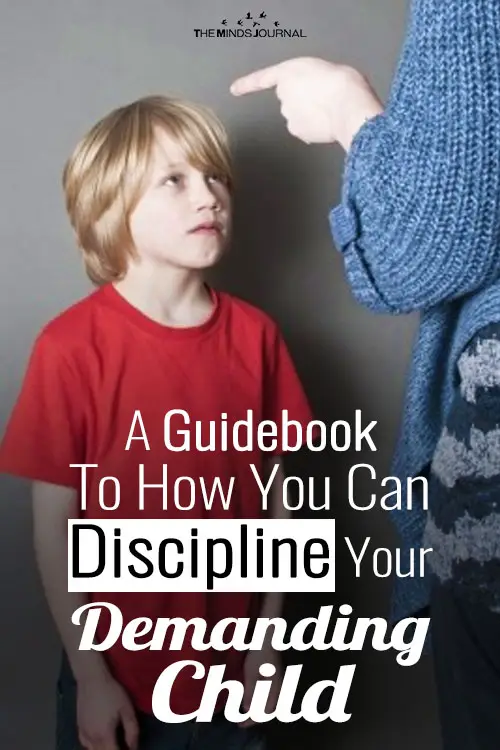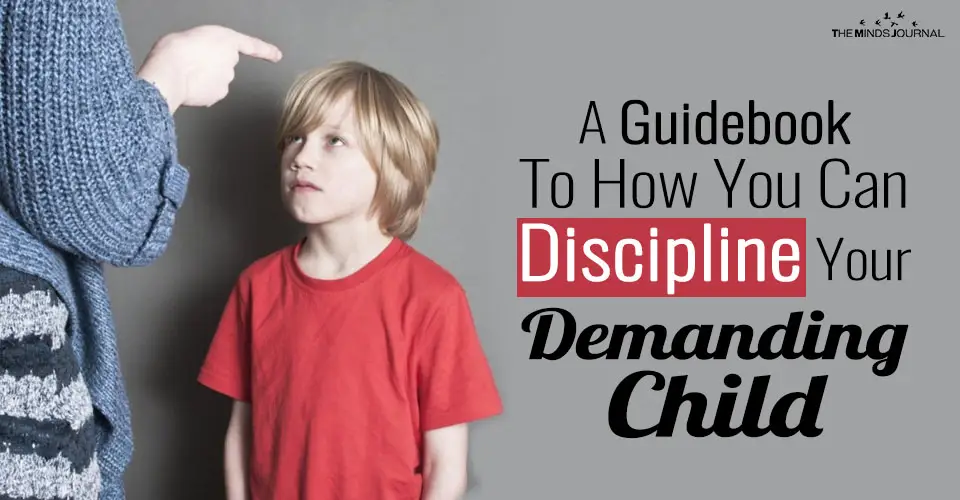As a parent, are you struggling to discipline your demanding child, but you are not sure where to start from and how to do it?
I thought I would share some insights about the demanding child. How do we teach our children to be considerate human beings and not demanding ones that throw a tantrum every time things don’t go their way? As always, first, we teach by example. We teach by remembering that they are like photocopy machines that learn to mimic our actions, words, and intonations.
There is a distinct difference between a demand and a request. Let’s say a child received a gift and didn’t say thank you. Typically, parents say to a child “what do you say?” In that question from the parent is a hidden demand (I want you to say thank you). In being present with yourself in a moment such as that, a parent might say “That was such a nice gift Justin gave you. Would you like to say anything to him?” This gives the child an opportunity to choose, without being forced to choose. If that child chooses not to say thank you, that’s ok, because the child is left with himself in that choice.
What I mean by “a child is left with himself in that choice” is that there is no “interference” in the moment by any “old” part of ourselves that would make the child feel “bad” about their decision.
The child is then left with himself wherein he or she has an opportunity to experience whether his choice felt “right” or not in that moment. Children learn in their own time. Within every human being lives both a compass and the good to which it points. Somehow along the way, we have buried that internal guiding compass.
Want to know more about how you can discipline your demanding child? Read How to Raise Emotionally Intelligent Children: 3 Crucial Lessons To Teach
Many of us have experienced a strongly negative demanding child. The child that screams and makes a scene because they were told “no” to their request (which most likely came in the form of demand in the first place).
First, we have to understand that it was our very inattention that created that demanding child’s behavior in the first place. It was the past that spoke to us in the moment and convinced us to acquiesce to them in their fitful display. That acquiescence created a negative pattern that will manifest itself once again until properly sacrificed in the moment it appears. Reactions are memories. They are the past revisiting the moment for another opportunity to not do the same ol’ thing again. They are simply old patterns that just repeat themselves.
Let’s say a pattern that has been created is one that when you go to the grocery store, your child always demands a candy bar, and you have acquiesced to that demand time and time again in order to avoid a scene. In order to break that pattern, there has to be a disruption of that pattern.
Don’t ever assume that your child is too young to understand something. Simply speak to them from your heart. Being honest with them by saying something like “You know Jane, I didn’t help you by giving you those candy bars every time you screamed for them at the grocery store. I actually hurt you by doing that. You may not understand that now, but it is true, and I’m sorry. So, I just wanted to let you know that I can’t continue with that same pattern anymore, and so I won’t be buying you candy bars when we go to the grocery store, or (name other places you tend to give in). You may still feel the need to scream and throw a fit about it when I tell you “no”, and that’s ok, but it won’t make a difference in my decision. I love you and want to help you be the best person you can be.”
I can’t stress enough how vital it is to follow through with something such as this. It is a “wrong” order of things to allow a child to dictate and demand a parent to do anything. The adult is “above” the child and intended to be the proper guide to them. The present moment is “above” the past and was always intended to be the proper guidance to each and every one of us. Until we can live in the right order of things, nothing will ever change.
Those patterns are why a child does a certain something with a parent and not necessarily with a nanny, aunt, uncle, or grandma. It’s not because what I hear many parents say “oh, they only do that with mom”. It’s because there have been patterns created and established with one person and not necessarily another. Those patterns need to be un-established, sacrificed, or the past will just continue to breed itself.
Consistency and living example are always vital components in parenting.
We need to slow down in order to be aware of what we are saying and doing in our child’s presence. This actually applies across the board in all aspects of our life. If we aren’t present, we can’t be aware of how we are complicit in the continuation of harmful old patterns that only demand the continuation of themselves. I know that sounds weird, but it’s true.
Are you looking to know more about how you can raise your children in the best way possible? Read 10 Simple But Vital Life Lessons To Teach Kids Before They Turn 10
The world tells us we need to be frantically busy. When we continue to agree to be part of that old belief system, we are “pushed through” the present moment. We are pushed to speak and act with inattention. We are pushed to continue old patterns because it pushes us to just “give in”. That’s how our children become us, how they become the product of society. Nothing new can come from old patterns.
As with all great things, sacrifice is needed. To be “with” a child, no matter how “busy” we are, requires sacrifice. We need to take the time and remember what we truly wish for them, no matter the cost to us or our precious image of ourselves. The most beautiful part of sacrificing ourselves in that way is that the good, the new, that we wish for our child is also bestowed upon us. That is how it works. It truly is magic.
If you want to know more about how you can discipline your demanding child, then you might find this video interesting:









Leave a Reply
You must be logged in to post a comment.